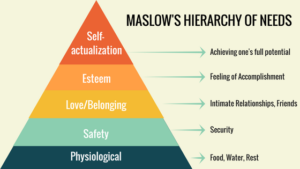“I’ve done everything right. I’ve gotten my degree, worked at top firms in the country, earned a lot of money, and traveled, but somewhere in me, there is a void. I feel empty, incomplete, to the point I sometimes wonder why I’m even alive,” said Vanessa during a phone coaching consultation. She had been referred to me for coaching by her colleague, Sam, whom I have been coaching on starting his own business. “I have been getting more than I anticipated out of these sessions for business ownership. I’m growing so much. Would it be okay if I asked you to help my childhood friend and colleague,” said Sam, to which I responded, “The first step will be a screening. After the screening, I’ll make a decision.”
After first listening to Vanessa over the phone, I explained that I would next schedule a one-hour consultation to determine definite steps, to which she agreed. We then started working together, and now, she is in the process of creating something new.
Regardless of nationality, ethnicity, cultural background or beliefs, we all have a set of needs. Theses have to be met for us to be fulfilled. Whether we were born in a home or family that valued formal education or emphasized a religious or spiritual upbringing or something else completely different, the Need Fulfillment Theory applies to all of us. Whether we were born rich or poor, male or female or carry a particular sexual orientation, there is a set of needs that must be met if we are to be fulfilled. And, remember, a certain level of education or socio-economic status does not mean immunity concerning this set of needs being fulfilled.

Some needs are more obvious than others. We all need to eat, groom ourselves, and sleep. These are obvious needs and are barely related to the Need Fulfillment Theory. The Need Fulfillment Theory consists of what we call the SWEET 7 Fundamental and Universal Human Needs, enumerated below. This series of articles relate to looking separately at each of these needs.
Here they are:
-
Sense of Safety
-
Sense of Freedom/Self Identity and Variety
-
Love and Connection
-
Self-worth
-
Meaning and Purpose
-
Growth
-
Contribution
Let’s start with the first one,
Sense of Safety
Safety means “safeguard” and “security.” It also denotes “certainty.” By “Safety,” we are referring to different dimensions, and all these dimensions need to display this level of safety for that specific need to be met. Which dimensions are we alluding to? We are alluding to: physical safety, emotional safety and financial safety. Because these Seven Needs must be met for fulfillment to be possible, it means that each of us need to feel safe—physically safe, emotionally safe and financially safe—in order to experience fulfillment. As a result, it is very important to look at what is necessary for us to have this Safety Need met. In this specific article, we will look at one of them.
Physical safety:
Some individuals may have been exposed to physical abuse; other individuals may be living in a neighborhood where incidents take place more often than in other areas, while some others may either witness or hear about such incidents and internalize them in forms of concern, fear, anxiety, and an overall lack of a sense of safety. Unfortunately a lack of physical safety makes it difficult for the other Fundamental and Universal Needs to be met. With this in mind, it is clear that fulfillment can be elusive for those with a lack of safety—notably, physical safety.
What to do:
Ensuring physical safety will often require physical and emotional interventions to take place. A physical intervention might mean moving to a new location, securing a more stable living arrangement, in a safer neighborhood, for example. It also may mean taking steps to organize the community around safety. This, in fact, may be a more powerful step than initially imagined, because it represents and highlights the ability to take steps towards establishing safety, in the midst of feeling unsafe. This in turn helps with the emotional intervention that may be required for safety. Following the principle of classical conditioning, someone who may feel physically unsafe may continue to feel so even if they move to a different and safer neighborhood. When this happens, some important emotional interventions are required. I will talk about these interventions in the subsequent articles when I discuss emotional safety.
References:
-
Borderline Personality Disorder: What Is Needed: SWEET Institute, 2019
-
Finding Your Purpose: SWEET Institute, 2018
-
Finding Your Passion: SWEET Institute, 2018